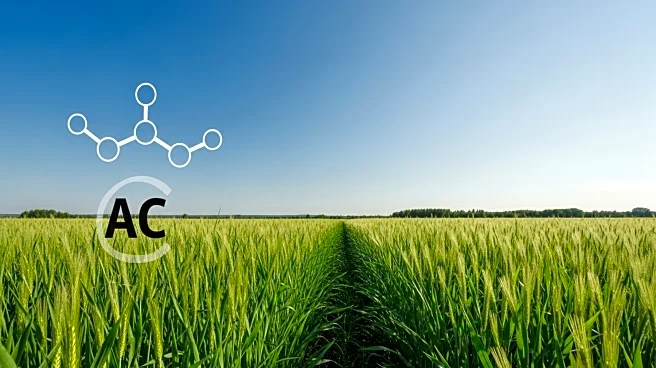What is the story about?
What's Happening?
The carbon farming market is anticipated to grow significantly, reaching US$ 330.01 billion by 2032, according to DataM Intelligence. This growth is driven by rising food demand and the need to mitigate agricultural emissions, which account for approximately 11% of global greenhouse gases. Carbon farming involves sustainable practices such as soil management, agroforestry, and livestock-crop systems to capture and store atmospheric carbon. Europe currently leads the market, supported by ambitious climate goals under the EU Green Deal and frameworks like the Carbon Removals and Carbon Farming Regulation. Asia-Pacific is the fastest-growing region due to the adoption of agroforestry and integrated systems in emerging economies.
Why It's Important?
The expansion of the carbon farming market is crucial for addressing climate change and reducing greenhouse gas emissions from agriculture. By adopting carbon farming practices, farmers can contribute to environmental sustainability while potentially increasing their revenue through carbon offset sales. The market's growth reflects a broader shift towards sustainable agriculture, which is essential for meeting global climate targets. As corporate and government demand for carbon offsets increases, farmers have new opportunities to monetize their efforts in carbon sequestration, enhancing their economic resilience.
What's Next?
The carbon farming market is expected to continue its growth trajectory, with Europe maintaining its leadership due to supportive policies and regulations. Asia-Pacific's rapid expansion is likely to persist, driven by government-backed rural development programs and agritech innovations. However, challenges such as measurement and verification complexities remain, requiring technological advancements to ensure credibility and scalability. As carbon credit mechanisms mature, farmers will increasingly integrate carbon farming into their operations, contributing to global climate strategies.
Beyond the Headlines
The rise of carbon farming highlights the intersection of agriculture and climate policy, emphasizing the need for standardized methodologies to ensure reliable carbon sequestration measurements. Ethical considerations around greenwashing and the integrity of carbon credits are critical as the market expands. Long-term, carbon farming could transform agriculture from a major emitter to a climate solution, influencing policy frameworks and corporate sustainability strategies worldwide.
















